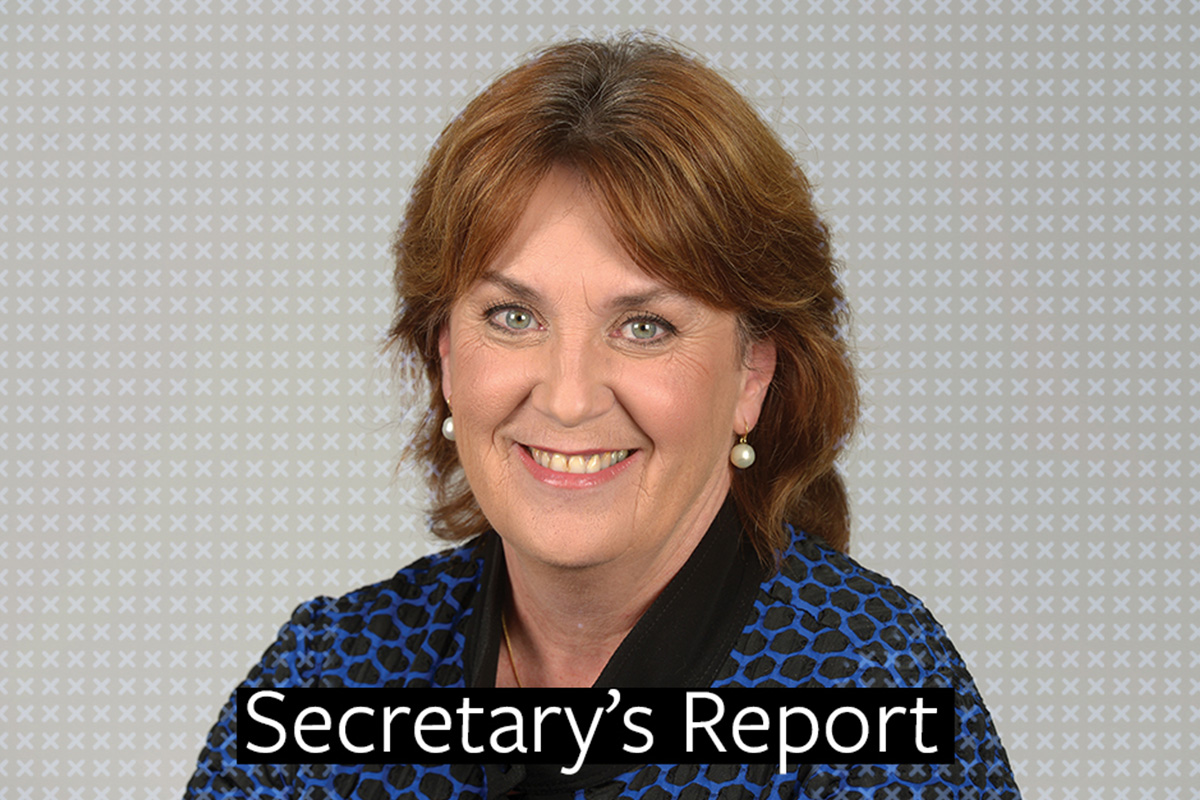
Members will have received an email from us recently calling for your pandemic stories, for publication in an ANMF book and website. We have commissioned this project to ensure that the experiences of nurses, midwives and carers – who have borne the unrelenting brunt of COVID on all sides – are preserved for the historical record.
The three years since March 2020 have been unprecedented in every imaginable way. The words ‘once in a century’ are appropriate, because the only comparable event in living memory occurred just over 100 years earlier: the ‘Spanish flu’ pandemic of 1918 and 1919.
Stories from that pandemic provided eery insights for governments, healthcare workers and the general public living through COVID. In Prince Henry’s: the evolution of a Melbourne hospital 1869–1969, Jacqueline Templeton records this 1919 memory from a nurse caring for influenza and pneumonia patients in the makeshift pandemic hospital at Carlton’s Royal Exhibition Building:
‘Even those with the brightest prospects required constant hard nursing, while delirious ones had to be coaxed into subjection and persuaded to remain in bed … Pneumonia patients were kept sitting upright, tied, by means of a pillow under the knees, to the back of the bed, to maintain position. This was not easy. They were usually big solid men, they were very sick, and they slipped easily or sagged over to one side … They coughed and spat up thick sticky sputum which they found difficulty in getting out of their mouths and into the spittoons. They had to be helped to reach the spittoons on their lockers. They had to be lifted back into position frequently and the poultices and wrappings made them heavy and awkward to handle.’
We can learn a lot from such recollections, and the significant insight they offer into the day-to-day work of healthcare workers during extraordinary times.
Likewise, it is vital that we produce a record of your experiences for future generations to understand what you and your colleagues went through – and are still going through – and how the world shifted for you, especially in terms of your day-to-day work.
We’re especially keen for stories about what you, as healthcare workers, had to do professionally; what you had to change, and what you couldn’t change, as you did your jobs through this still ongoing period of unprecedented demand. What do you want people in 10, 50 or 100 years time to know about how you provided care and how you worked through the pandemic? Tell us your stories.
Welcome grads
Once-in-a-century viruses are life-changing on a universal scale. On a more intimate scale, we all go through the life-changing experience of starting our careers as nurses, midwives or personal care workers.
Whether it was half a century or half a decade ago, we have all been through our first day, week, month and year. All but the most recent of us were lucky to not go through this challenging time during a global pandemic that radically upended how we were expected to do the jobs we trained for.
While the situation inside our health services and aged care facilities may not be quite as challenging for this year’s grads as it was for those starting during and in the immediate wake of the Code Brown this time last year, this is still an overwhelming time for the newest registered members of our professions.
It is therefore more important than ever that we all support each other, no matter where we are in our career journey. I thank you for being mindful of this support needed at this particular time.

